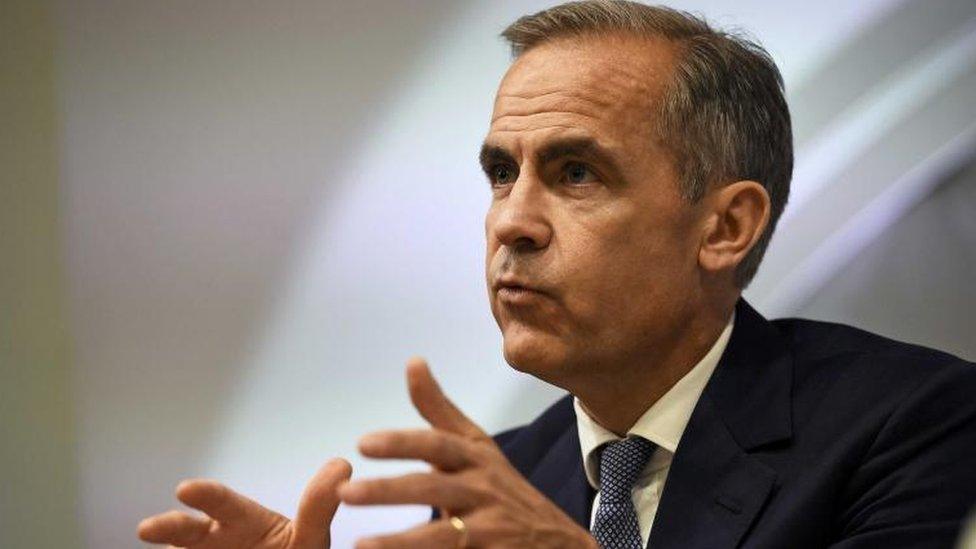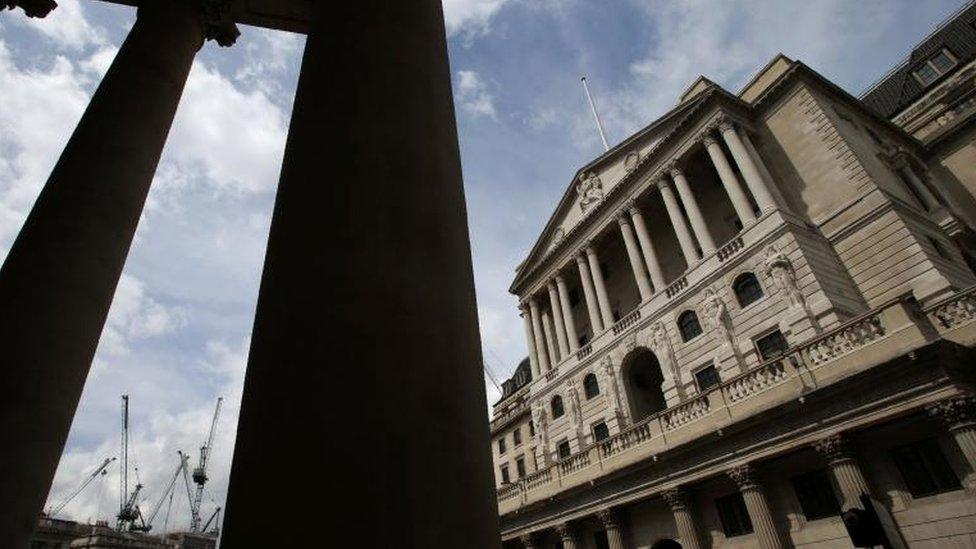Mark Carney hits the reassurance button
- Published
- comments

Bank governor Mark Carney has sought to calm market jitters since the referendum
At the last Inflation Report, published in May, you could hunt high and low with little success for the word "positive" when it came to the Bank of England's analysis of the possible fallout from any vote to leave the European Union.
Mark Carney, the Bank's governor, averred there could be a "technical recession" - that is six months of economic contraction with all that could mean for job losses and real incomes.
Sterling could fall sharply, investment dry up and confidence slump.
Today, a different tone - nuanced, maybe, but still significant.
Although Mr Carney made it clear that the economic risks were still very visible - and indeed some, such as sterling's slump, were beginning to "materialise" - preparation ahead of the referendum was now paying off.
And, yes, he actually used the word "positive" for some of the effects seen post the Big Vote.
Financial markets had remained stable, government and business borrowing costs - even for the battered banks - had fallen and the decline in the pound had provided a boost for exporters and businesses that earned revenues overseas.
Investors may be concerned with profitability and economic growth, Mr Carney said.
What they didn't seem so worried about was the resilience of the whole system, which can be a much more toxic issue - as anyone who went through the 2008 crisis will attest.
That is not to suggest that the governor thinks anything much different from what he and members of both the Financial Policy Committee and the Monetary Policy Committee believed before the referendum.
It is to suggest that the governor is well aware of his new role post the leave vote to provide reassurance, a one-man stability mechanism during this remarkable episode of political and economic volatility.

The governor has not only been very visible since the vote on 23 June - today is his third appearance before the cameras - but he has also been keen to say that the Bank is working as it should to provide all the monetary and financial stability support it can during such uncertain times.
That has gone a considerable way to calming market jitters.
Of course there are significant risks ahead, the Bank says.
It has raised fresh concerns about the debt levels being carried by "vulnerable" consumers who might be affected by job losses or a fall in incomes.
It says foreign investment in commercial property developments has declined significantly.
And, given that 75% of all lending to smaller businesses uses commercial property as collateral, any fall in prices could have worrying knock-on effects for access to credit.
Today's announcement that Aviva has followed Standard Life in stopping people removing their money from its property investment fund for fear of a disorderly "rush for the exit" shows that uncertainty in the commercial office and shops market is having a tangible impact on retail investors.
Which could have an impact on broader consumer confidence.
Housing transactions have also slowed and the share prices of the major home builders have slumped, raising fears about the government's targets for house building.
Which were pretty heroic in the first place.
Mr Carney also warned that the UK's large current account deficit meant that foreign investors' confidence in the country's economy had to be maintained.
The UK relies on the "kindness of strangers" to service that deficit, as the governor memorably put it earlier this year.
Mr Carney's tone has softened. No, he doesn't believe there are necessarily sunny uplands ahead.
It's just that his job in a world where there is such little visibility politically or economically on the path ahead has changed.
From warning mode. To reassurance.